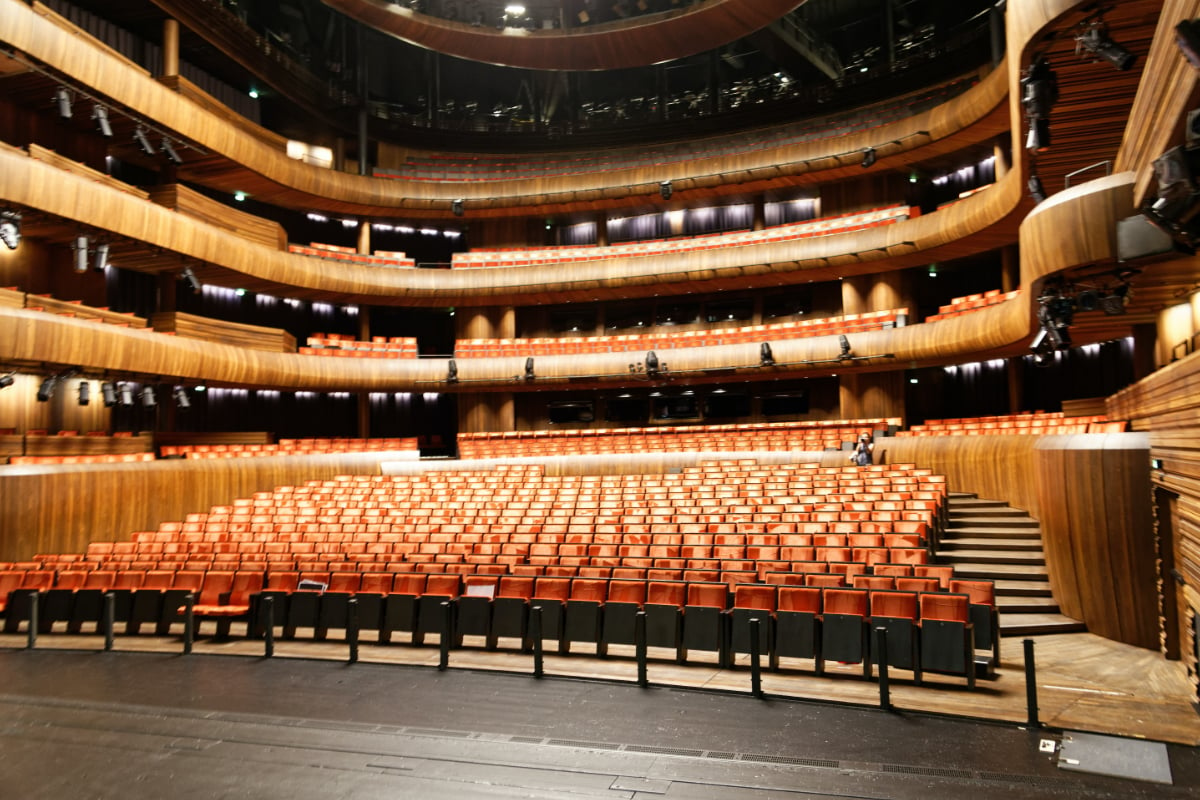
Photo: Gu Bra
Theatre woes deepen
With the wide-ranging problems facing the theatre industry, Ruth Hogarth thinks it time for a review to safeguard its future.
As we come to the end of the third year of hardship in the theatre industry, the outlook continues to look precarious. In the short term, a combination of the cost-of-living crisis, high ticket prices and transport strikes (plus a general reluctance from some audiences to return to live theatre post-pandemic) means theatres are struggling to fill seats to generate necessary income.
And that’s without the pressures of funding cuts, mounting production costs and difficulties filling vacancies in the workforce – both front-of-house and backstage. But in the longer term too, there are challenges in training the next generation of professionals and in developing audiences of the future.
A serious skills shortage
A recent survey conducted by the union BECTU summarised the talent drain of theatre professionals as an “existential threat” to the industry. And it’s not only among stage management, lighting and sound technicians, but also in front-of-house and marketing roles – affecting the whole range of theatres from large West End playhouses to fringe and touring companies across the country.
Performing artists too, overwhelmingly freelance, face serious challenges with the very precarious nature of their earning capabilities. With few of the ‘cushions’ extended to staff on PAYE, both daily rates and touring allowances have failed to keep pace with inflation, leading to a precarious occupation becoming impossible for all but the most well-heeled.
Training and the talent pipeline
In addition, the training of a new generation of theatre professionals is at risk. The depletion of arts and drama provision in schools, the cutting of vital skills training and apprenticeships and the serious threat of closure facing drama academies because of a lack of financial viability – they all paint a bleak picture for the future.
Arts degrees in universities are also under threat, the most recent example being the proposed cut of 84 academic posts from across Film, Media and Cultural Studies along with staff members in English, Theatre and Creative Writing at Birkbeck, University of London.
And, as news broke this week, some of the vital incubators for new writing talent like Hampstead Theatre and The Donmar, are having to adapt their business models towards commercial activity at the expense of new work nurturing new talent, largely due to funding cuts in the capital.
Ticket sales and pricing
This week, a survey of members of the Society of Independent Theatres warned that two in five theatres face closure if they fail to achieve strong ticket sales this Christmas. They would normally expect to generate about a quarter of their annual revenue at this time of year. But advanced sales currently suggest many theatres will fail to meet the targets.
And, while Covid is beginning to be spoken of in the past tense, there are still unprecedented levels of illness among performing artists, with understudies filling in at a rate previously unknown. This presents a serious problem of trust between theatres and their audiences around ticket pricing.
Just two weeks ago I attended a highly acclaimed West End show with a star performer billed – with very high prices to match – only to find, at curtain up, that four roles were to be filled by understudies, including the star role. When I contacted the theatre, I was informed that I had bought tickets for the show, not the performer. While contractually within their rights, theatre needs to extend goodwill to its audience to maintain them. I will pause before laying out such large sums in future.
What next?
If a long-standing theatre lover, who spends a significant proportion of their disposable income on theatre thinks twice about buying tickets, what about less dedicated theatregoers? And with such high prices, will any young people, or indeed most industry professionals, be able to afford to go to a West End show in future? But these aren’t just West End problems, these issues affect all theatres up and down the country.
If the range of problems faced by theatre were apparent in any other industry, there would be calls for government intervention. In recent years, there have been a raft of government-commissioned reviews into areas such as post-18 education, music education and NHS digital delivery, for example. Surely the time is ripe for a review on the future of the theatre industry.
Join the Discussion
You must be logged in to post a comment.